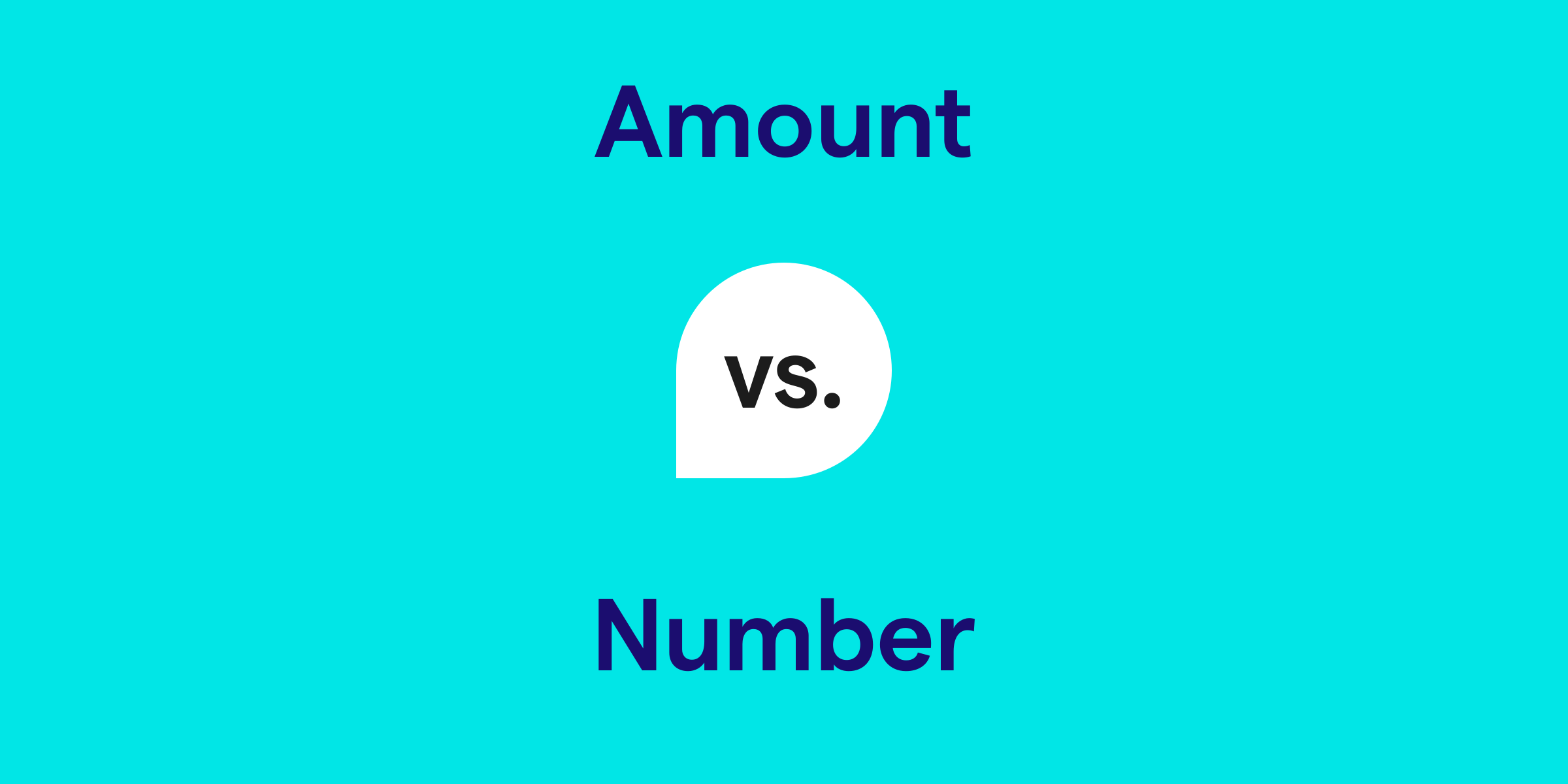Amount vs. Number: What's the Difference?
The words amount and number are often used in data quantification but in different contexts. Amount is used when referring to a quantity of something that is not countable, often involving mass or bulk. Conversely, number is used for things that are countable and can be assigned individual units or elements.

How do you use the word amount in a sentence?
The word amount should be used when discussing quantities that can't be counted one by one. It refers to the total quantity of something that is measured rather than counted, such as substances or concepts with continuous values. Use amount when the items in question are not individual, discrete units.
Examples of amount in a sentence
- The amount of sugar in this recipe seems excessive.
- He has accumulated a considerable amount of wealth over the years.
- Measure the amount of water needed to fill the pool.
How do you use the word number in a sentence?
The word number is used when referring to items that can be counted individually. It refers to a total that consists of distinguishable units, such as people, objects, or events that are discrete and can be assigned a numeral. Use number with count nouns that represent individual elements.
Examples of number in a sentence
- The number of participants in the marathon was higher than last year.
- Can you tell me the number of books on the shelf?
- The number of stars visible tonight is truly astonishing.
Amount and number definition, parts of speech, and pronunciation
Amount definition:
Amount refers to the quantity of a substance or concept that is perceived as a collective whole or a mass which cannot be counted individually.
Amount parts of speech:
Amount pronunciation:
Amount is pronounced as /əˈmaʊnt/.
Number definition:
Number represents a mathematical object used to count, label, and measure, usually applied to discrete quantities of countable objects.
Number parts of speech:
Number pronunciation:
Number is pronounced as /ˈnʌmbər/.
Amount refers to the quantity of a substance or concept that is perceived as a collective whole or a mass which cannot be counted individually.
Amount parts of speech:
- Amount as a noun: The total amount of rainfall this month surpassed records.
Amount pronunciation:
Amount is pronounced as /əˈmaʊnt/.
Number definition:
Number represents a mathematical object used to count, label, and measure, usually applied to discrete quantities of countable objects.
Number parts of speech:
- Number as a noun: He has memorized the number of every player on the team.
Number pronunciation:
Number is pronounced as /ˈnʌmbər/.
Amount vs. Number in a nutshell
The key to using amount and number correctly lies in judging whether the items in question are countable or not. Amount is for uncountable quantities measured as a whole, such as liquids, grains, or abstract concepts. On the other hand, number specifically refers to countable things like people, books, or events. Understanding this distinction helps to convey precise information and avoid common grammatical mistakes.
Get AI Writing Assistance Wherever You Type
Make sure your vocabulary is on point and every punctuation mark is in the right place, no matter where you’re working. Grammarly works across more than 1 million websites and apps so you can improve your writing without copying, pasting, or breaking focus.

More Commonly Confused Words
Interest piqued? Pore (not pour) over other commonly confused words to help your writing reach peak (not peek) performance.